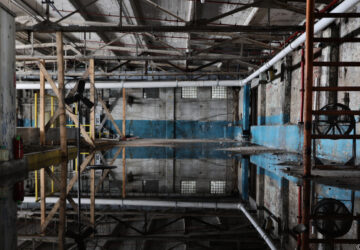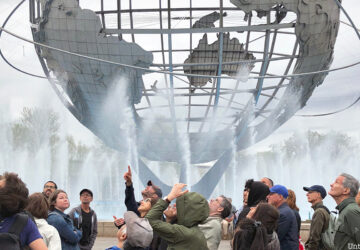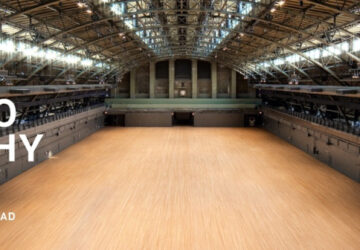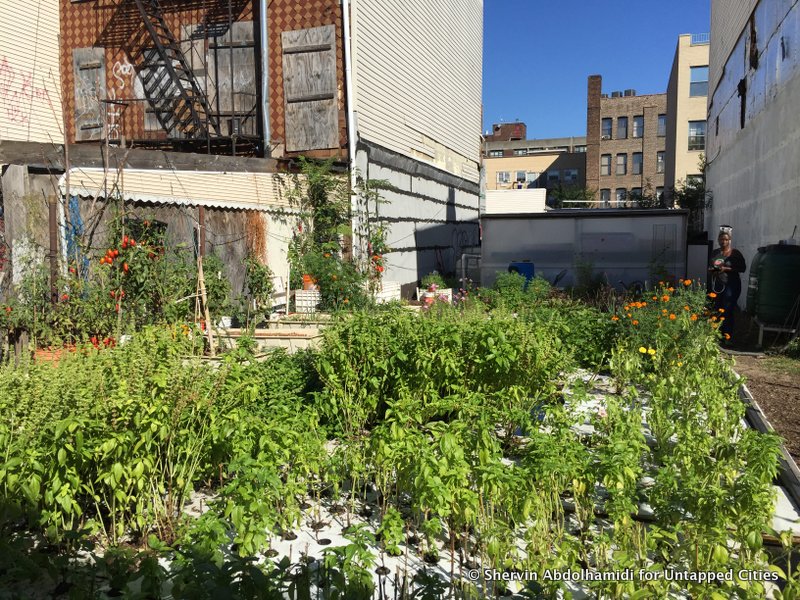
In the midst of a medley of stores, bodegas, and warehouses in Bushwick lies a little patch of farmland. Surrounded by a liquor store and a smoke shop, Oko Farm has an entrance as nondescript as you can get. The fence does little to justify the haven that lies behind the shack that spans the length of the lot. But look carefully and you may notice the New York City Department of Parks and Recreation sign and a tattered laminated diagram —the only indicator of the aquaponics farm within.
Aquaponics is a method of urban farming that involves a closed cycle between fish and plants, utilizing the animal’s excretion as plant nutrients. The fish’s excretion-laden water is pumped to the plants, which in turn filter the toxic waste from the water. 70% of the world’s freshwater is used for industrial agriculture and this closed loop system significantly reduces water usage—thus providing a sustainable means of farming as we contend with diminishing freshwater sources. Oko Farms, though one of many urban farms in New York City, is the oldest aquaponics venture in Brooklyn.
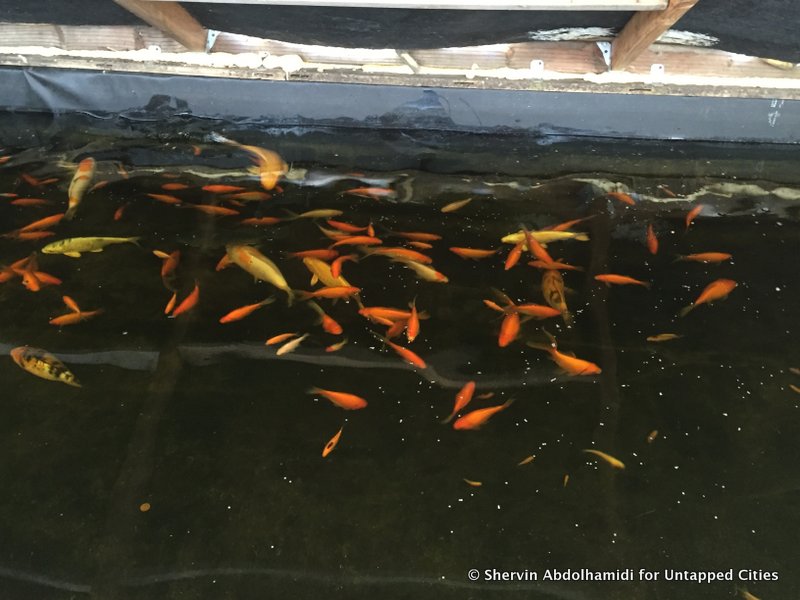
Yemi Amu, the founder of Oko Farms first shows us her indispensable fish tank—the cornerstone of the process. Rather than using tilapia, the traditional urban fish farmed since antiquity in Egypt and China, Yemi has been experimenting with different types of fish, such as catfish (also edible), and ornamental fish like koi and goldfish. She explains that while tilapia have a very short maturity cycle, they just aren’t suitable to the cold climates of New York City. She states, “We currently do not sell our fish [as] we are still experimenting with various types of fish. They are currently a source of nutrients. We do however harvest the warm season edible fish, cook and share with the community.”
“The only input into an aquaponics system is food which the fish consume, resulting in a completely organic system,” Yemi points out as she feeds pellets to the fish. The tricky part, according to her, is balancing the number of fish with the plants. In order to plant more herbs, you need to figure out the proper balance of fish in order to provide nutrients to the plants.
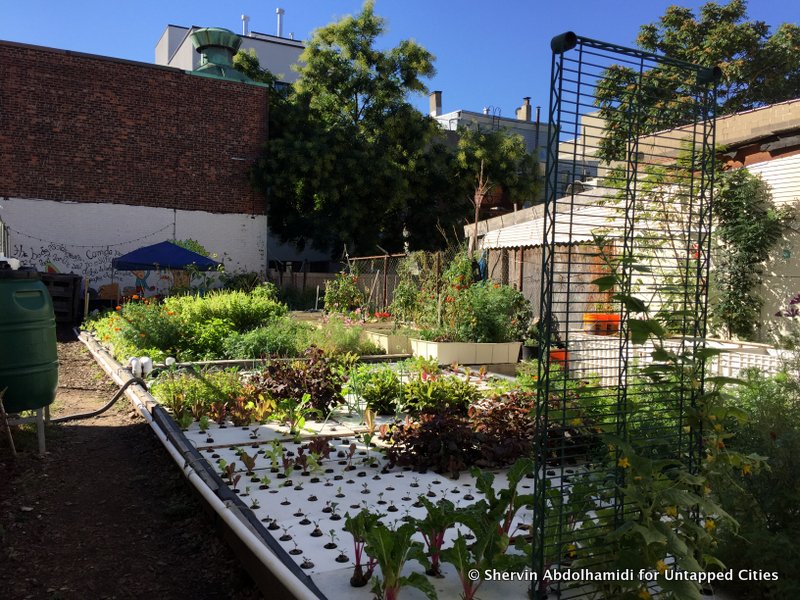
Trying to make sense of the pumps and pipes, we walk outside the shed to the farm behind it. There’s an astonishing assortment of plants and herbs, all floating in a shallow, soil-less solution. The plants currently range from onions, garlic chives, cucumbers, beans and tomatoes, to basil, mint, kale, swiss chard and even flowers. Yemi says, “We experiment with growing a variety of both freshwater fish and plants. This year, we experimented with freshwater prawns and also tried out beans, cucumbers, peppers, and onions.”
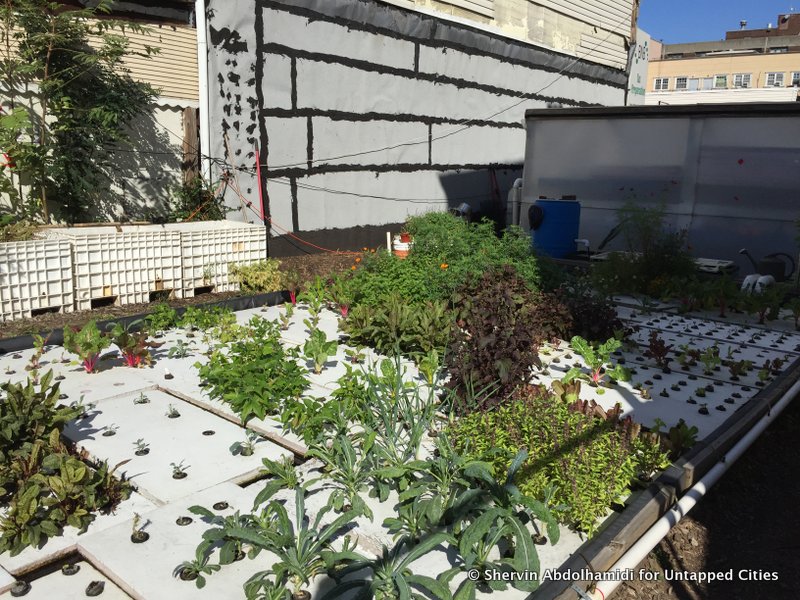
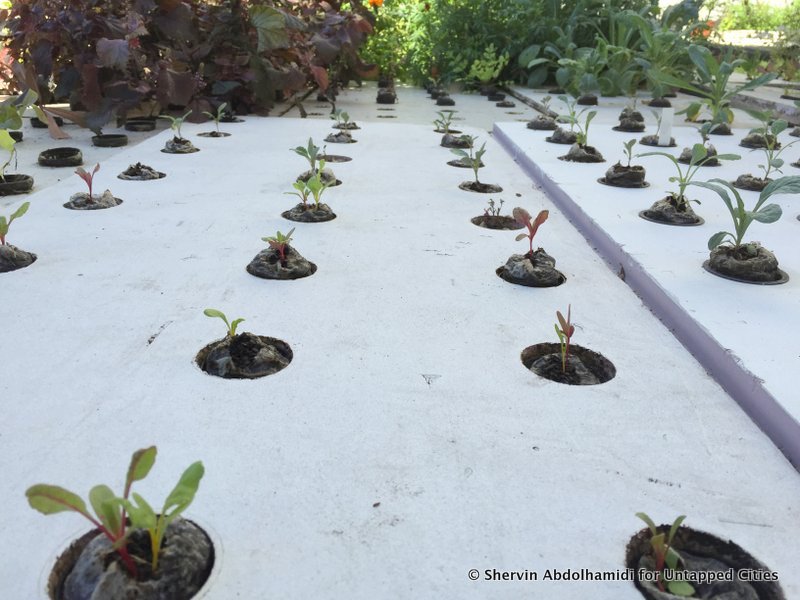
While the farm was established in 2013, the elusive search for this coveted piece of land began in the winter of 2011. Yemi explains that after an extensive search, she acquired the 2,500 square foot formerly vacant lot from New York Park and Recreations after the owner of the Moore Street Market informed her about it. Since then, the farm has gradually expanded over the years. And while Yemi does not have any full-time staff, she does have high school and college interns who help her expand her farm.
“Every year we try to add something,” she says. In 2017, Oko Farms, which currently sells its produce at the Moore Street Farm, aims to add a farmer’s market component and emphasize on its sales efforts.Currently the farm stops in November while they continue to cultivate fish through the winter but there are plans to add an indoor component in 2017, allowing plants to grow through the winter.
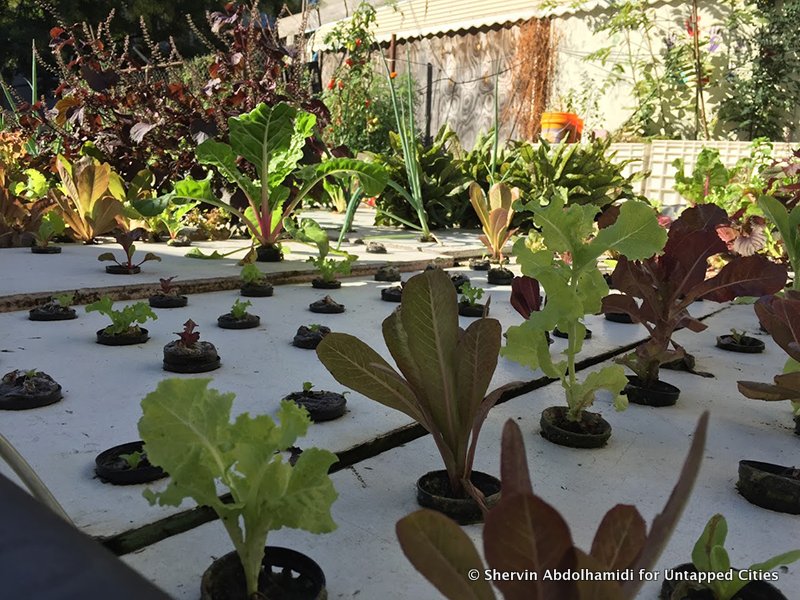
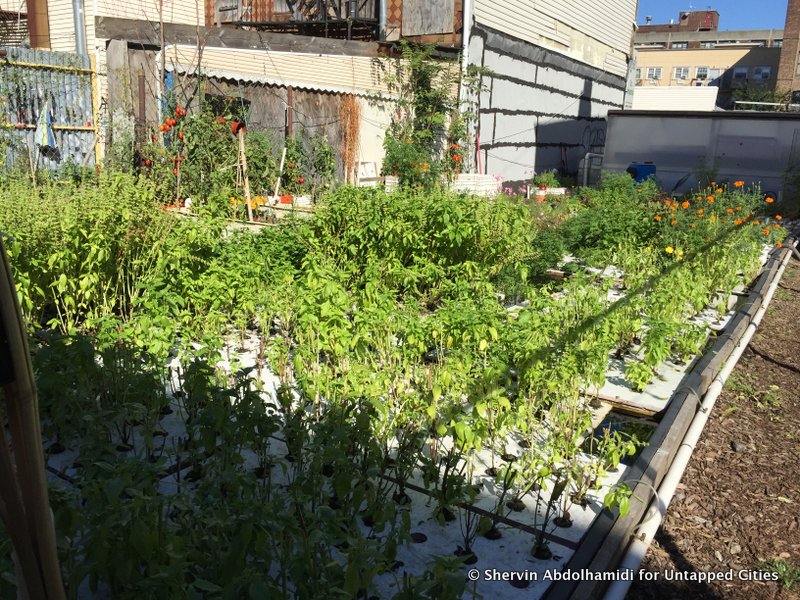
Why bring aquaponics to New York City, we asked her. Yemi says, “The thought of fish farming in New York City, [it’s] the last place you’d expect it.”
Next, check out 10 of the most unique urban farms in NYC.
